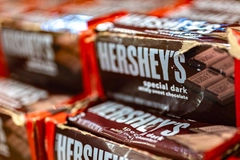
- Industry news
Industry news
- Category news
Category news
- Reports
- Key trends
- Multimedia
- Journal
- Events
- Suppliers
- Home
- Industry news
Industry news
- Category news
Category news
- Reports
- Key trends
- Multimedia
- Events
- Suppliers
15 Feb 2024 --- Howtian has recently completed a Life Cycle Assessment (LCA) of its core stevia product lines. The assessment, conducted by the Switzerland-based Société Générale de Surveillance (SGS), scrutinized key environmental impact measures such as carbon and water footprint.
Howtian embarked on an extensive LCA of its high-purity Rebaudioside A 97 stevia, a prevalent extract in the industry. The assessment revealed that Rebaudioside A 97 outperforms conventional sugar in sustainability metrics and sets new benchmarks within the stevia industry for environmental performance.
Tom Fuzer, VP of market strategy at Howtian, says, “With the CO2 footprint of stevia typically less than a quarter than that of sugar, stevia producers have generated industry awareness that the popular plant-based sweetener is one of the most environmentally-friendly solutions available.”
“However, there hasn’t been enough assessment to compare the sustainability performance among stevia manufacturers with their different processing methods and technologies.”
Environmental impact
The rise of natural sweeteners like erythritol, stevia, and monk fruit has garnered increased interest in sugar reduction, making them the top three choices for low-sugar and sugar-free products, according to Innova Market Insights.
 Ready-to-use Stevia solutions can be customized according to different market needs.In terms of quality, SGS conducted an analysis to determine the environmental impact of producing and processing Howtian’s Reb A 97 to achieve the equivalent sweetness of one metric ton of white sugar.
Ready-to-use Stevia solutions can be customized according to different market needs.In terms of quality, SGS conducted an analysis to determine the environmental impact of producing and processing Howtian’s Reb A 97 to achieve the equivalent sweetness of one metric ton of white sugar.
According to the study, Howtian achieved a 78% reduction in CO2 emissions compared to cane sugar and a 77% reduction in water usage. Agricultural land usage sees a 94% reduction.
“We are delighted with the results of our sustainability efforts,” says Fuzer. “They are a testament to the success of our dedicated Sustainability Program, a program we started in 2017 to develop high-yielding plant variants and invest in energy and water-efficient extraction technologies.”
Driving sustainability through technology
In light of escalating consumer demand for sustainable practices in the Fast-Moving Consumer Goods (FMCG) sector, businesses have been increasingly adopting stringent sustainability standards, particularly in ingredient sourcing for F&B products.
This trend has prompted ingredient manufacturers, including those in the stevia sector, to reduce the environmental impact through innovation.
Tate & Lyle has been exploring the benefits of optimizing fertilizer use in the agricultural sector to enhance sustainable stevia cultivation. The company adopted slow-release fertilizer technology, which has been claimed to simplify stevia farming while maintaining productivity compared to previous practices.
Next-generation stevia, produced through innovative technologies like fermentation and bioconversion, presents a promising solution to mitigate supply issues and crop disruptions, ensuring a consistent supply of high-quality, clean-tasting stevia in the market.
Edited by Sichong Wang












